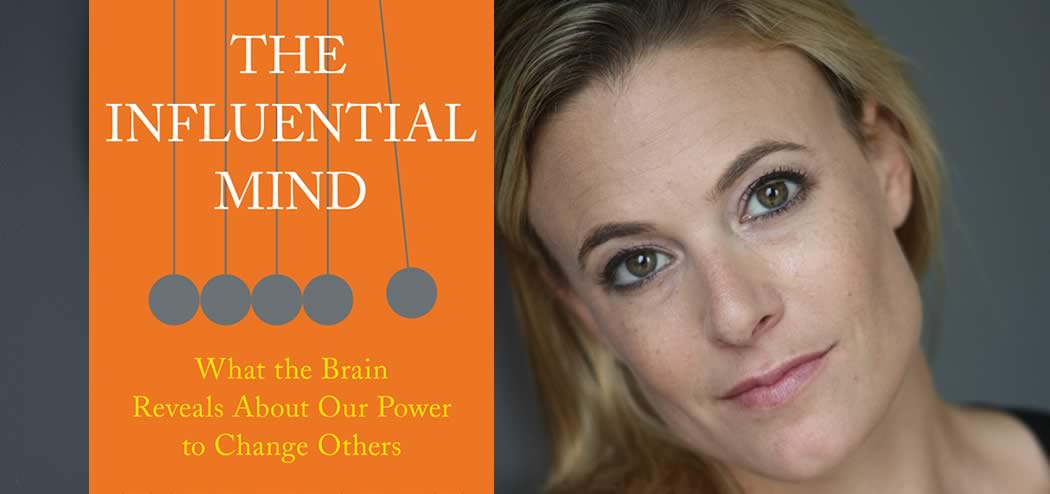 |
| The Influential Mind by Prof Tali Sharot |
Tali Sharot is a Professor of cognitive neuroscience in the department of Experimental Psychology at University College London. This book is mainly about the fact that how we are influenced and how we can be heard or put our message across.
We all been in arguments either directly with people, over the telephone or online. Be it on issues as complex as Brexit, Climate Change, Health Care, etc. That we found it difficult to change the opposing parties perspective or ideas. It is not that the facts are not there but we have been set in our ways and can be easily influenced by emotions and not facts. The author gave an example during the US Presidential debate between President Trump and Dr Ben Carlson a pediatric Neurosurgeon, the issue was on autism and vaccination. Trump was able to influence the debate and manipulate the emotional aspect of the audience brains. While Dr Ben Carlson, just dryly rolled out facts and was concerned with influencing the intellectual part of the brain. Dr Carlson had failed to link with the emotional aspect of his audience and it seems, he lost that debate, because of that. Trump used strong simple descriptive words, and hence was able to connect with the audience. He was able to paint a picture of a "little beautiful baby" receiving a massive injection made for a "horse". Fear is said to an effective emotion to cause change but not as effective as hope. Fear works best when it is suggesting inaction in this case not to receive a vaccine and also also when the person is already is anxious.

Hence Prof Sharot states that since Trump who is able to use his communication skills in changing the dialogue, it is a good example on how those who wish to use intellectual arguments based on facts and logic will fail to their own demise when faced with a smooth operator like Trump.
Prof Tali Sharot gave several examples of how people were influence based on psychological tests, Brain Scans and MRI. How to change behavior and how to manipulate people to be on your side in an argument. That it is easier to get people to do nothing, especially if they are afraid, than do anything especially if there is a risk involved. With massive amount of information out there which is suppose to make our decision process easier, other people could skew the information or manipulate it producing desired results. Because our brains are not programmed to deal with the massive information that is produced in digital era, that why we use graphs and charts to simplify information. With producing about 2.5 billion gigabytes of information everyday without searches or AI, we would have problems analyzing such huge amount of data. All that data and information does is polarize us with each side entrenching in their own corners being selective on the information. If the information confirms what they believe, they use it and it further solidifies their belief (confirmation bias) and if it goes against it they dismiss it. Then, there is a boomerang effect, any contradictory information causes them to sought out further supportive information, hence confirming and further distancing them from the counter argument. This causes a problem because you could find information that supposes you what ever your angle is.
Hence, we have flat earthers, climate change deniers, smokers, alcoholics, Trumpians, etc who believe their own ideas and via confirmation bias are entrenched in their beliefs. On google you can find a piece that states strawberries are actually bad for you and butter is good in your coffee (bulletproof coffee). Both advice is unhealthy, both it goes to say, that we could find anything to agree with us on google. So showing someone a page with data and information will not help him or her, or even enlighten the individual but may make things worst. Also google has a complicated algorithm that selects the information it gives you based on, your previous searches, location, etc. Hence, not exposing you to counter arguments or alternative view points and restricting you what you believe, hence you find yourself in a bubble which constantly reinforces your beliefs.
From studies, it has been found that it does not depend on a person's intelligence or previous knowledge. They will just selectively be dismissive of any counterpoints and if you present them with data, they will interpret it in a way that will support their viewpoint. Hence, giving them links or papers will not help as it is total waste of time. If people receive nonsupporting information their brains "shut down" psychologically and is less receptive to the new information with an alternative view point, most of the time this is subconsciously and we may not be aware of it. Hence, it is essential to find common ground and work off from there.
Whether we could change our core beliefs system depends on a variety of factors.
- Prior Beliefs :"When you provide someone with new data, they quickly accept evidence that confirms their preconceived notions ". In fact, presenting people with information that contradicts their opinion can cause them to come up with altogether new counterarguments that further strengthen their original view; this is known as the “boomerang effect.”
- Emotion : "Emotions are especially contagious; by expressing feelings ourselves we are shaping other people’s emotional states, and by doing so we make it more likely that the people in front of us will take on our point of view.
- Incentives : Anticipation of rewards usually beats fear when it comes to getting people’s brains to act. This is one of the reasons why video games can be so addictive.
- Agency: "all else being equal, cancer patients who have a greater perception of control survive longer. Lower risk of cardiovascular disease has also been associated with a greater perception of control. This is not surprising; the sense of control reduces fear, anxiety, and stress—all things that have a detrimental effect on our bodies"
- Curiosity: Our brains seek out positive information if is like a drug to us. People don't want to get HIV tested even if it is free.
- State of mind: When we are afraid, we are more susceptible to negative information.
- Other People: We like to feel we are independent but actually we are not it is a lie that we have told ourselves.
Psychologist are extensively and thoroughly doing research into human behavior and the Prof was able to drawn from a wide variety of projects or studies. There was one called a Marshmallow test as 4 year old children were promised another marshmallow if they could refrain from eating the one before them for a period of time. It was found after several years those that refrained were more successful in every way. But a modified version was done where a trust element was inserted and it was found that those who had reason not to trust the experimenter eat their marshmallows immediately. It is generally found that people who are generally optimist and positive minded about life in general, do much better.
They also found that people have phobias about things that could not killed them. The leading cause of death in the US are Heart disease, Cancer, Chronic lower respiratory disease, Accidents,
A scary thought is that some of the software giants, have been conducting research on how to manipulate people. Facebook has been said to manipulate people's opinion by introducing emotional charged post's and studying the reactions they elicitate. It has been found out by giving negative posts to people, the persons responses and subsequent post are negative. Twitter, avoided the ethical issues of corporate manipulation by doing a retrograde study, i.e. they will identify a negative or positive tweet, and study subsequent posts, the result were the same, that emotion is infectious and can change opinion - at least online. although Facebook is been in the news a lot, with people concerned with data privacy and security, especially with Cambridge Analytica and the Trump campaign but that is a different story.
Another scary thought is that you know why computer games are so addictive and is one of the highest grossing industries.

Getting people to see you view is essential for CEOs or leaders, because you have to get people to at least agree with your vision, before you could do anything successfully. JFK was believed to have kicked the Apollo Space program by his speech he had to galvanize a nation and it resources to commit itself for a long term endeavor - to send a man to the moon. As at the time people do not know how and the technology was not even available. Many people believed if he had not given that speech we would have never reached the moon. Sometimes it is not logical to be logic in certain circumstances, but to speak to the "heart" and not peoples "brains".
Comments
Post a Comment